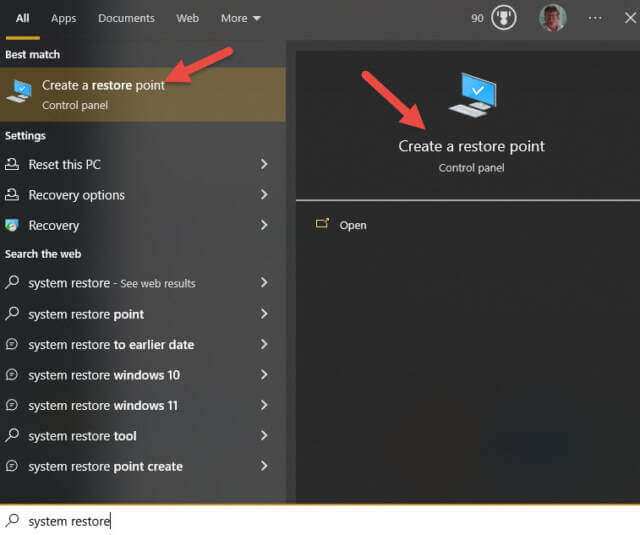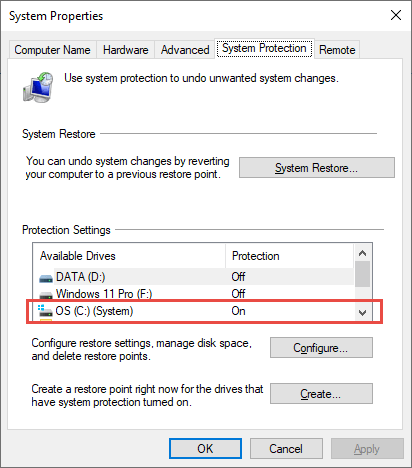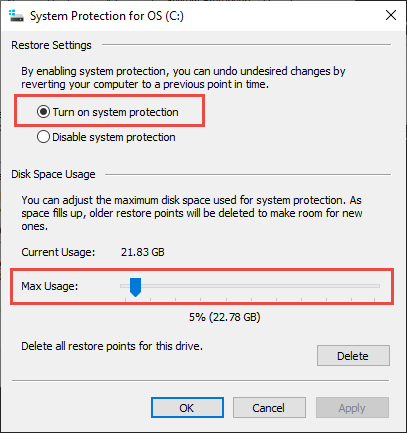Many pundits, so-called Windows experts, promote System Restore as the best method for curing PC problems. In my opinion, that is bad advice and System Restore should always be a last resort rather than the first response.
If you’re experiencing an issue with your operating system, the first response should always be to try to find a solution for that particular issue. By doing so, you will be learning more about the operating system, plus, if the issue ever arises again, you’ll already know how to solve it.
Admittedly, finding a solution is not always successful/possible but there are other steps that should be taken before resorting to a System Restore:
- Scan for malware: Malware is among the leading causes of system issues
- Run DISM: Open an elevated command prompt (admin), type in Dism /Online /Cleanup-Image /RestoreHealth, and hit Enter
- Run System File Checker: Open an elevated command prompt (admin), type in sfc /scannow, and hit Enter
- Please read: How To Use DISM
- You also might like: Differences Between SFC and DISM Explained
Completing those steps will identify any infections that need to be cleaned out and also confirm whether there are any system file corruptions or not. Once you’ve unsuccessfully tried to find a solution and confirmed there are no malware infections or system file corruptions, then you could try a System Restore.
How To Turn On System Restore
There is nothing worse than heading to System Restore, after exhausting all other avenues, only to find it hasn’t been turned on. Here’s how to make sure System Restore is turned on:
- Open the Start menu and type system restore then, in the results, click Create a restore point
- If System Restore is already turned on for your system drive (usually C), you are all good. If not, click the Configure button
- In the Restore Settings window, enable the option to Turn on system protection and…
- Under Disk Space Usage, use the slider to select the amount of disk space allocated – I usually recommend between 10- 15%
- Click Apply/OK
BOTTOM LINE:
Yes, System Restore can get you out of trouble in certain situations but it is far from an ideal solution. If you truly want to make sure that a misbehaving OS can be recovered from any situation, including disastrous situations, the best possible solution is to regularly create system image backups. I use Aomei Backupper Pro to regularly create system image backups but the Standard (free) version will do the job perfectly well.
Do you use System Restore or a backup solution? Let us know in the comments.
—




I use windows backup set to a weekly sequence. The beauty of this is that I am always reminded to backup via notifications.
I have used it, at times, after every other repair attempt had failed, but it is not as great as they say. Many times, I have been disappointed because it not only did not fix my issue but also seemed as if it was not rolling it completely back to the previous point. I saw programs still there that were installed only after the last restore point! What’s with that.? I stopped depending on that worthless tool. Instead, just as you mentioned, I have full Acronis images of my disk which are 100% guaranteed to return my machine to the way I want. Trust me, they have saved my neck at numerous times as I have only 24 hours in a day and no more time to troubleshoot.
I find Sys Restore Worthless and so do the techies at M$. I frequently do the DISM and SFC routine though they seldom resolve my problems at hand. I clone my drive to an old spinner and that saves me from potential losses, and M$ will always tell you to do a reinstall from one of their current ISO’s. I used to be frightened that doing a reinstall over my current system would cause me to lose my files and programs but they haven’t had issues with that for years now.
My hard drive has a logical partition where I save all my data. So, when I do make and restore images, they are only to do with the C: OS partition. It works like magic! I do NOT trust System Restore from past experience.
I used to think system restore was great but no longer. It does not completely reverse the machine to the previous state leaving remnants of the more recent state. I have no faith in it anymore. Instead, I absolutely love my disc image. I can trust it 100% And it’s the cat’s meow.